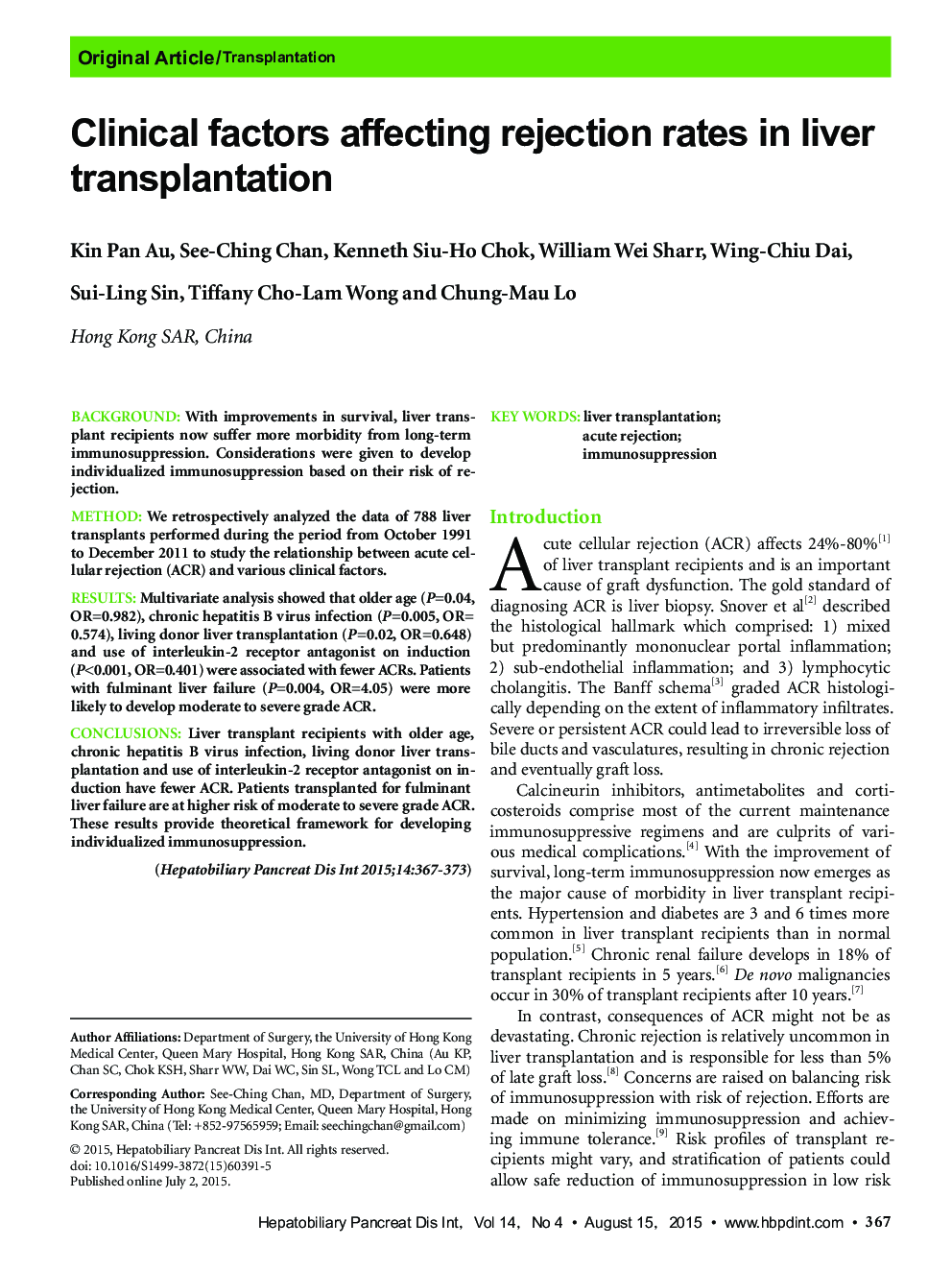| Article ID | Journal | Published Year | Pages | File Type |
|---|---|---|---|---|
| 3337150 | Hepatobiliary & Pancreatic Diseases International | 2015 | 7 Pages |
BackgroundWith improvements in survival, liver transplant recipients now suffer more morbidity from long-term immunosuppression. Considerations were given to develop individualized immunosuppression based on their risk of rejection.MethodWe retrospectively analyzed the data of 788 liver transplants performed during the period from October 1991 to December 2011 to study the relationship between acute cellular rejection (ACR) and various clinical factors.ResultsMultivariate analysis showed that older age (P=0.04, OR=0.982), chronic hepatitis B virus infection (P=0.005, OR= 0.574), living donor liver transplantation (P=0.02, OR=0.648) and use of interleukin-2 receptor antagonist on induction (P<0.001, OR=0.401) were associated with fewer ACRs. Patients with fulminant liver failure (P=0.004, OR=4.05) were more likely to develop moderate to severe grade ACR.ConclusionsLiver transplant recipients with older age, chronic hepatitis B virus infection, living donor liver transplantation and use of interleukin-2 receptor antagonist on induction have fewer ACR. Patients transplanted for fulminant liver failure are at higher risk of moderate to severe grade ACR. These results provide theoretical framework for developing individualized immunosuppression.
